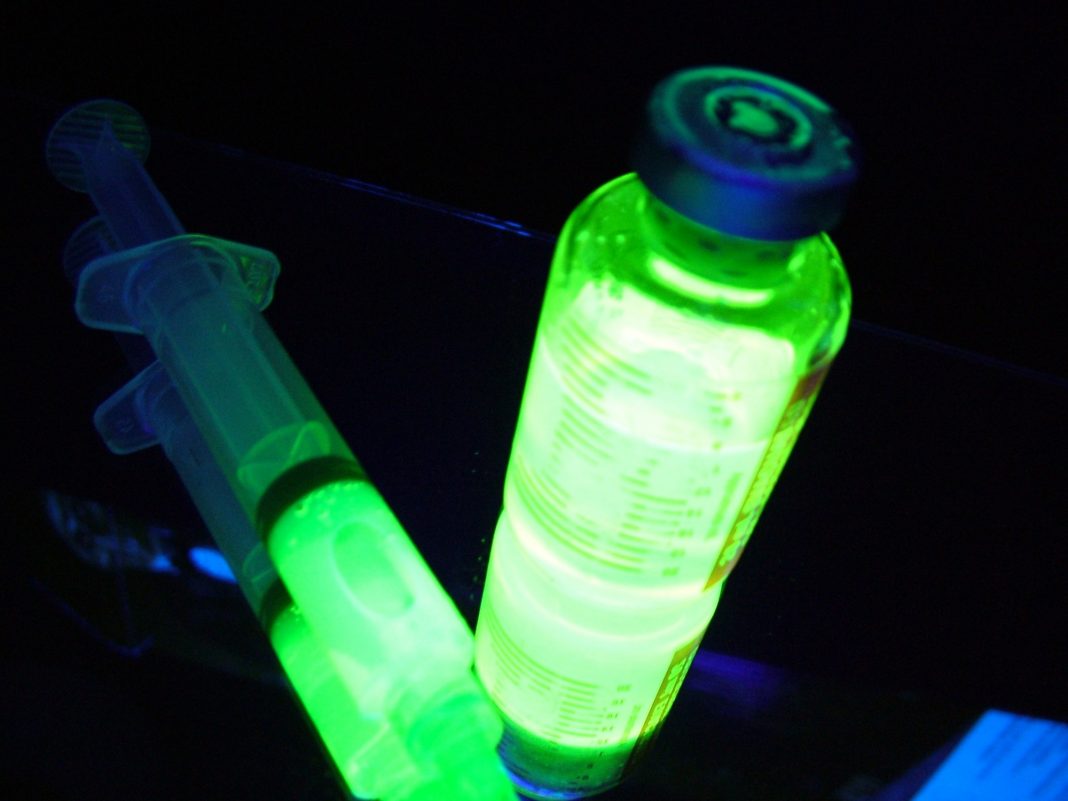The Clinic of Nuclear Medicine at the University Hospital is located both in Düsseldorf and at the Research Center Jülich, and runs a nuclear medical out-patient department covering the whole spectrum of radioisotope scanning from thyroid and skeleton scintigraphy to examinations of amino acid metabolism for tumor diagnosis. As well as several conventional gamma cameras at both locations, the clinic also runs four SPECT cameras partly equipped with more than one detector head. There is also an out-patient department in Jülich, which specialises in thyroid disorders and excels by combining the diagnostic approaches of internal medicine with nuclear medical ones.
Part of our diagnostic spectrum are cutting-edge nuclear medical examination techniques such as positron emission tomography (PET). This method is used to examine glucose metabolism in patients suffering from cancer or cardiologic, neurological and psychiatric diseases. Apart from the wide range of diagnostic possibilities, the Clinic of Nuclear Medicine is one of the largest nuclear medical therapy centers in Germany, specialising in the treatment of benign and malign thyroid disorders.
Patient care
In Nuclear Medicine, very small amounts of radioactive substances are applied during diagnosis and/or treatment. These are called ‘tracers’, and are used to study metabolic processes or organ function within the human body. The distribution of radioactive tracers is made visible with special radiation detecting cameras. Thus, metabolic irregularities may be diagnosed which are indicative of specific metabolic diseases.
Presently, nuclear medical physicians are able to detect a number of metabolic disorders; diseases may be diagnosed in an early stage, even if organs are not altered in morphological terms. Tumor cells, for example, are characterised by elevated glucose utilisation. Therefore, Nuclear Medicine may detect the tumor earlier by labeling glucose with a radioactive isotope and observing its consumption within the body before changes are detectable by morphological imaging methods (MRI, CT). Nuclear medical examinations may also be successfully employed for the diagnosis of brain diseases such as Parkinson’s disease, Alzheimer’s, or epilepsy. Today, because of Nuclear Medicine, much more is known about their causes. Investigations of the Clinic of Nuclear Medicine showed that psychiatric diseases such as depression may be related to specific biochemical changes of the brain. Radioiodine therapy is vastly applied for the treatment of thyroid diseases. In patients suffering from thyroid cancer, tumor cells may be effectively destroyed using this method. The applied radioactive iodine almost exclusively accumulates within the tumor cells, which are destroyed by the emitted radiation.
Research and teaching
Our research focuses on the assessment of brain functions. Generally, our studies involve measurements of blood flow, glucose utilisation and neuroreceptor/transporter binding. One major field of research is the investigation of brain regions relevant to memory formation. Moreover, we investigate synaptic changes in patients with neurological and psychiatric disorders. A further aspect of our work is the employment of highly resolving small animal cameras for the assessment of pre- and postsynaptic regulation mechanisms.
These studies aim to deepen our understanding of dysfunctions related to diseases such as Parkinson’s, Alzheimer’s, schizophrenia, epilepsy and depression and contribute to the development of novel therapeutic strategies.
A further key topic of our clinical research is to investigate the effects of myocardial stem cell transplantation after cardiac infarction. Furthermore, we work on several oncological projects; a variety of malign neoplasms including brain tumors, thyroid cancer and prostate cancer are investigated applying PET or SPECT and newly developed radiotracers. Additionally, in a multi-center study, infantile tumors and their response to therapy are also investigated.
A further aspect of our scientific activities is the development and employment of highly-resolving cameras suitable for the investigation of small animals.
Dr Hans-Wilhelm Müller BA (open)
Clinic Director
Tel: +49 (0)211 811 85 40
Tel: +49 (0)211 811 70 41
nuk(@)uni-duesseldorf.de
www.uniklinik-duesseldorf.de/en/unternehmen/kliniken/department-ofnuclear-medicine/











